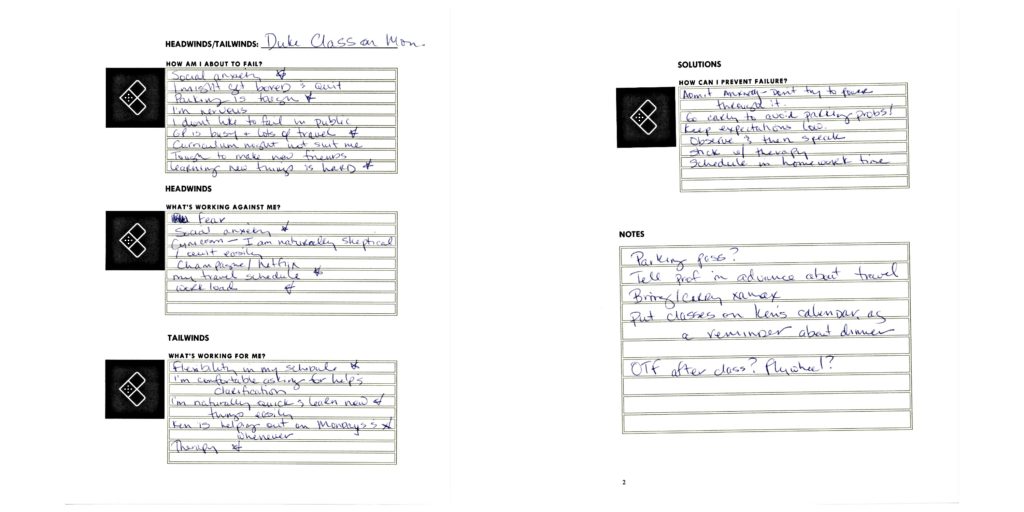Do you feel like your life is unnecessarily stupid and hard? Do you feel like you’ve accomplished a lot and wonder why other people can’t work as hard as you?
I heard a podcast, the other day, with Drs. Tom Gilovich and Shai Davidai. They explain why things seem needlessly hard for you in a paper called, “The headwinds/tailwinds asymmetry: An availability bias in assessments of barriers and blessings.”
Here’s my take on it.
Let’s say it’s a breezy spring day. Maybe you’re in Chicago headed towards the lake for a lunchtime walk. Maybe you’ve got the kids, and you’re walking from your car to the grocery store. It’s super windy outside, and you are moving forward into a headwind. Your hair is blowing everywhere, and your nose is running. Your eyes might be watering. All you can do is think about the wind in your face.
Now let’s pretend you forgot something at the office or in your car. You turn around and head back. Now breeze is at your back, and you’re thankful for the break from the wind in your face. No more runny nose or watery eyes.
But your gratitude doesn’t last long. Within moments, most of us totally forget about the wind that was just stinging our face. We take it for granted that the wind is now pushing us closer to our destination. And some of us act as if the wind doesn’t matter.
When facing a problem or a difficult challenge, Gilovich and Davidai found that most of us overstate the forces working against us (headwinds) and underestimate the things in working for us (tailwinds). When the wind blows in our face, we notice it. A lot. When the wind is at our back, we forget all about it and think we’re sailing along on our own accord.
That’s where gratitude, the practice of showing appreciation for the blessings in our lives, becomes important. Gratitude can shift your focus from the headwinds that get you down to the tailwinds that push you forward towards your goal.
But Gilovich and Davidai know that you can’t just tell people to be grateful. It’s a practice that you have to embrace on the individual level. They also mention that it’s helpful to do a premortem before you get started so that you know where you might fail. Then you can work backward and set yourself up for success, taking into consideration all the advantages in your life that can make you successful.
Since hearing the podcast, I’ve been doing the GlitchPath premortem on paper. I’ve been identifying why I might fail, and I’ve been pairing it up with the headwind/tailwind gratitude exercise. I created a little document for this process, and it’s working. For example, I’m taking a new class at Duke. I’m nervous about it. My personal worksheet looks something like this:
Here’s a downloadable sheet. If it helps you to put your life in perspective, use it.
But, more importantly, please remember to check out the aforementioned podcast and paper from Drs. Tom Gilovich and Shai Davidai. And start to think about how you can put your challenges in perspective. In a world where fear and anxiety are escalated, it’s good to know that gratitude — and the recognition and appreciation of our tailwinds — can help us to beat personal failure.

Good article. Good luck with your course at Duke. You will do well.